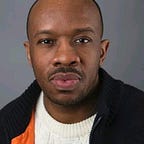Using Social Media As A Diversity, Equity, Inclusion, and Justice Tool
On the neighborhood specific app Nextdoor many people are using to stay on top of what is going on in our neighborhoods, I recently was engaged by a post with the title “Hookah Lounge. How do you feel about this place that is on South Alpine Rd?” Immediately, the title drew me in and I had a feeling it was a post I needed to read.
Once I got there, I saw posts coming from a very privileged and European perspective pointing fingers at and raising alarms about the mere existence of a hookah lounge on the southeast side of Rockford, Illinois — my hometown. Southeast Rockford, Illinois is historically a part of town where many white people live and own most of the businesses.
Jumping into my role as an advocate and as an activist with a mind for diversity, equity, inclusion, and justice I scrolled through comments with a deep focus on who was saying what and why. Clearly, most posts were coming from white people who either did not agree with a hookah lounge being there or who made very racist and ignorant posts about the business.
In the United States, and in other places where white people or Europeans are the dominant race or ethnic group, these kinds of posts seek to corner people of color and ask how or why we are doing business in places where belonging is only for them or by them. Equity is in low numbers in many cities across thr country and many white people would rather have it that way. Despite this country (and others) having ethnic groups of various kinds, people of color are always being watched, controlled, or pushed out of neighborhoods where we are not wanted.
Here is what I shared regarding the question:
“Maria G. just in case you did not know, asking this kind of question implies you are pointing the finger at a group of people, or their cultural norms, which you (and others) get to judge or not agree with. I also don’t need to remind you this country is made up of immigrants, various cultures, and ethnic groups. What you have done by asking this question is like a Turkish person saying “What do you think of that Starbucks in the neighborhood?” Often times, people of color don’t have the liberty or freedom to point fingers or judge the dominant culture (white people), with questions like this.”
Intentionally, I wanted this person to know what this post insinuated and what it is like when whites or Europeans take aim at us for simply existing or doing business to put food on the table. To assume that people of color are always doing something bad is continuing racism and creates hurdles where diversity, equity, inclusion, justice or belonging are harder to accomplish. When will this ever end, I do not know.
I was told in the post “Good for you” for bringing these things to reality and to the conscience of the people engaged. I was glad to have done so. I look forward to challenging harmful and hurtful narratives which paints a broad picture of people of color. The narrative of the United States must include all of the cultural norms and flavors of our ethnic foundations in order for the story of the United States to be complete. The sooner people of the dominant culture here accept this, the faster we achieve diversity, equity, inclusion, justice, and belonging here.
Hookah lounges are relaxing places where individuals and groups can escape the every day and enjoy a peaceful or a positive environment.
For more on hookah lounges, visit this link:
